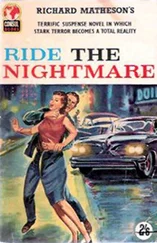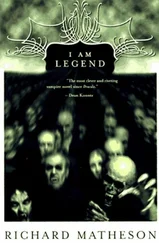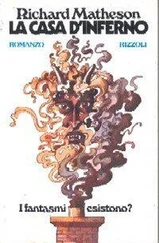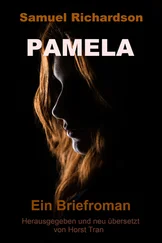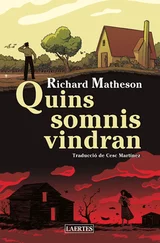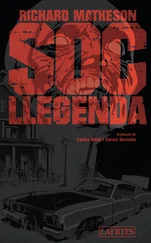So the deal was consummated, as they say in business circles. I accompanied Mr. Brean (against the advice of the barkeep Tom, who told me to throw “the damned lump” into the nearest lake and forget about it) to his office, which was really his home, an obviously expensive “cottage.” There, he gave me what cash he had on hand (fifty-seven pounds and change) and filled out an I.O.U. for the remainder. He scoffed repeatedly at Tom’s dire warning. “These people are obsessed with superstition,” he told me. Obsession again, I thought. He seemed obsessed with the word.
* * *
Which was the end of that. Mr. Brean walked me to the Gateford Inn. (I learned, later, that Gateford was the original name of the community.) There, I acquired a room—I seemed to be the only customer—had a meal in their dining room, empty as I dined, retired to my room, and fell asleep quite rapidly.
To suffer with a dreadful nightmare. In which I attended a double funeral—for my mother and sister. The dreadful element was that the good (bad) Captain met me at the door, took me aside from the other guests, whoever they were (I didn’t know any of them), and informed me that it had been decided by the navy “front office” that they would pay only a “limited” amount for the service, and therefore… well, I’d see.
I saw, all right. Both my mother and Veronica lay in stained, ragged cardboard boxes, both wearing torn, muddy nightgowns. Worse than that, neither had been made up in any way. Their hair was uncombed and tangled, and their faces looked as they had when they died—gray and twisted, some of their teeth showing behind black, retracted lips.
I screamed at my father, “How the hell could you have it done this way?! Are you insane?!”
Yes, that’s right. He smiled at me, that damned, cold, superior smile. “What do you know?” he asked.
“This is monstrous!” I yelled. “Monstrous!”
Still that maddening smile. “What do you know?” he asked again. (Which is when—sweating and shaking—I woke up in a tangle of sheet and blanket.) “God damn you!” I muttered as though it had really happened. I lay there until the shaking had stopped. And I knew, at that moment, that I would never go home. Home, I thought with murderous contempt. It wasn’t that anymore. I’d stay in Gatford. If I went back to Brooklyn, I’d kill him. No, I’d stay in Gatford.
I didn’t know then that it was a mistake.
The cottage I rented resembled a Nazi war bunker. I was about to write “ reminded me of a…” but that would be inaccurate, of course. In no way could it have reminded me of a military structure used in World War Two. You recall that I am writing this in 1982. I can therefore state, with impunity, that it looked like a Nazi cement (or was it concrete?) bunker. Not that it matters a damn. Stay with me. I’m eighty-two years old and have a tendency to ramble. I assure you that the weird stuff will be forthcoming—word of honor, Arthur Black, Esq.
Back to the cottage I rented. It resembled—sorry, just kidding. It was located on the edge of town. Not too attractive, the grounds (limited) overgrown with weeds and huge fernlike bushes, one of which resembled (no, not a Nazi bunker) a rearing lizard. It even had a yellow eye, a bright flower.
As to the rest of it. Not much to brag about. Very little, for that matter. Massive, lumpy granite walls, one recessed window, a shapeless doorway with an ill-hanging door, one story with a plank ceiling forming what I suppose you would call a second floor; it was called a “crogloft,” meant for hay. This was reached by a ladder and was dark and devoid of air. To be my bedroom, I realized, although it was not roomy enough for a bed, I’d sleep on a hay-stuffed pallet. I suppose I had little justification to complain, though, since the rent was a pound and a half per month. And at least the steeply pitched tile roof looked sound.
* * *
The steeply pitched, “sound” roof leaked like a sieve. I woke up in the middle of my first night in Comfort Cottage (named, I am convinced, by some sardonic humorist) near adrift on my pallet, my clothes ready for hanging on a line.
In somewhat of a testy mood, I trudged—deliberately wearing still-soggy apparel—to the farm of my landlord. He expressed deep surprise at my appearance and patiently explaining manner. Remember, I was only eighteen but did not wish to establish my stay in Gatford as a teenage curmudgeon. His reaction, accordingly—I learned a mini-lesson from that—was cordial. He would dispatch a repairman that very day to assess needed repair to my roof. He stated that the cottage had been unrented since 1916 and he hadn’t seen to its maintenance since.
That afternoon, the repairman arrived. And my adventure enlarged.
“Afternoon,” he said, a wiry man in his—no way of knowing, could be forties, fifties, sixties, seventies, eighties, or more; he looked fit enough to manage any age. He extended his hand and gave me a grip that made me wince and remember Harold’s forceful handshake.
“I’m Joe Lightfoot,” he told me.
I’m sure I gaped. “Lightfoot?” I murmured.
“That’s the name,” he said.
I tried to speak but couldn’t. I swallowed with effort and regained my voice. At least enough of it to ask, “You’re Harold’s—relative?” I hesitated before finishing the question, not wanting to name a specific relation—uncle, brother, father.
His answer, as they say, floored me. “Who?” was what he said.
“Harold,” I mumbled. “Harold Lightfoot.” I could not believe that such a name was commonplace.
But it was. I learned, from him, that Lightfoot was a commonplace family name in Gatford, had been for centuries. He had never heard of Harold—although he did know a Harry Lightfoot.
He asked me who Harold Lightfoot was, and I told him. He said it was known that several young men from Gatford had enlisted in the British Army; at least one of whom he knew of had been killed. His mother still lived in Gatford. Somewhere in the woods. He’d never heard of Harold’s death.
And that was that. (For the moment) the rest was tile roof and leakage. He retrieved the ladder from inside the cottage, leaned it against an outside wall, and scrambled up to the roof. There, he seemed to know exactly where the worst leak was (above my pallet) and repaired it with some dark concoction he’d brought with him in a pail; he had the “spreading tool” (I don’t know what else to call it) inserted beneath his belt like a leak-combating weapon. He also pulled the soggy pallet outside and placed it in the one—miraculous, I thought—patch of sunlight available. He’d replace the pallet the following day, he said; continue his repairs. He suggested that, for the night, I sleep on my army overcoat.
Which I did. And although it rained again, I remained dry, slept well and dreamless (I was grateful for that) until early morning. Joe was already at work on the roof. I had brought, from the village, a loaf of rye bread, a thick wedge of cheddar cheese, and a bottle of milk. This I had for breakfast, offering some to Joe, who thanked me but said he’d “already supped” on oatmeal and coffee.
I thought, since there was nothing for me to do, that I’d go for a walk through the countryside. As I started away from the cottage, Joe called down, “Stay on the path, young man!” I made nothing of the remark. I should have.
The path leading into Gatford woods was distinct enough. In its early stages, it had flat granite rocks lining its direction. Only as it led into the woods did the stone lining discontinue. Still, the path was clearly visible. It seemed (only seemed, I told myself, not wishing to succumb to negative fancy) to become more quiet as I entered a thickening section of the woods—more trees, more bushes, more grass and flowers—a little farther in, the sound of the “babbling brook” commenced that way. As I neared the stream. Or the stream neared me. I later wondered.
Читать дальше



